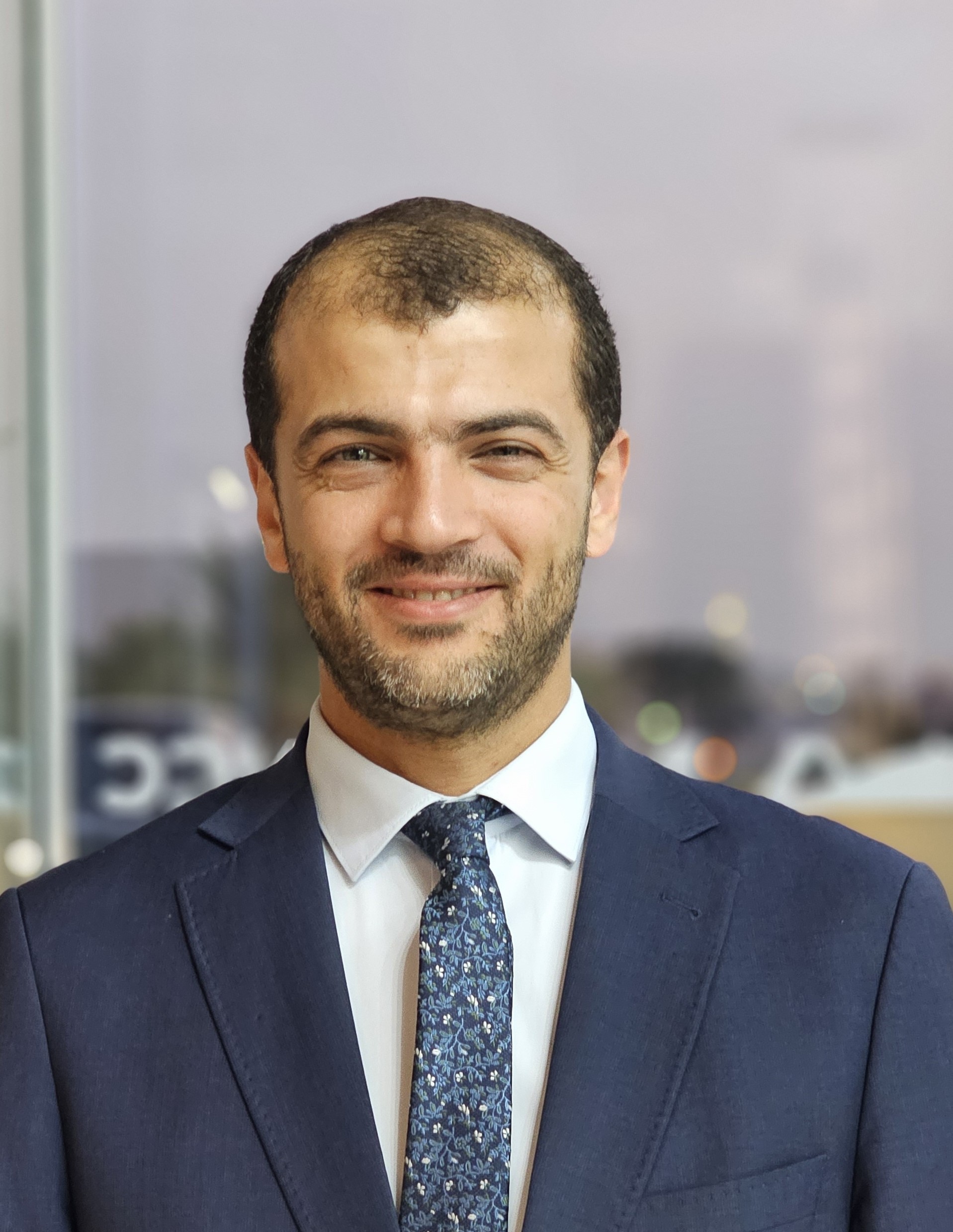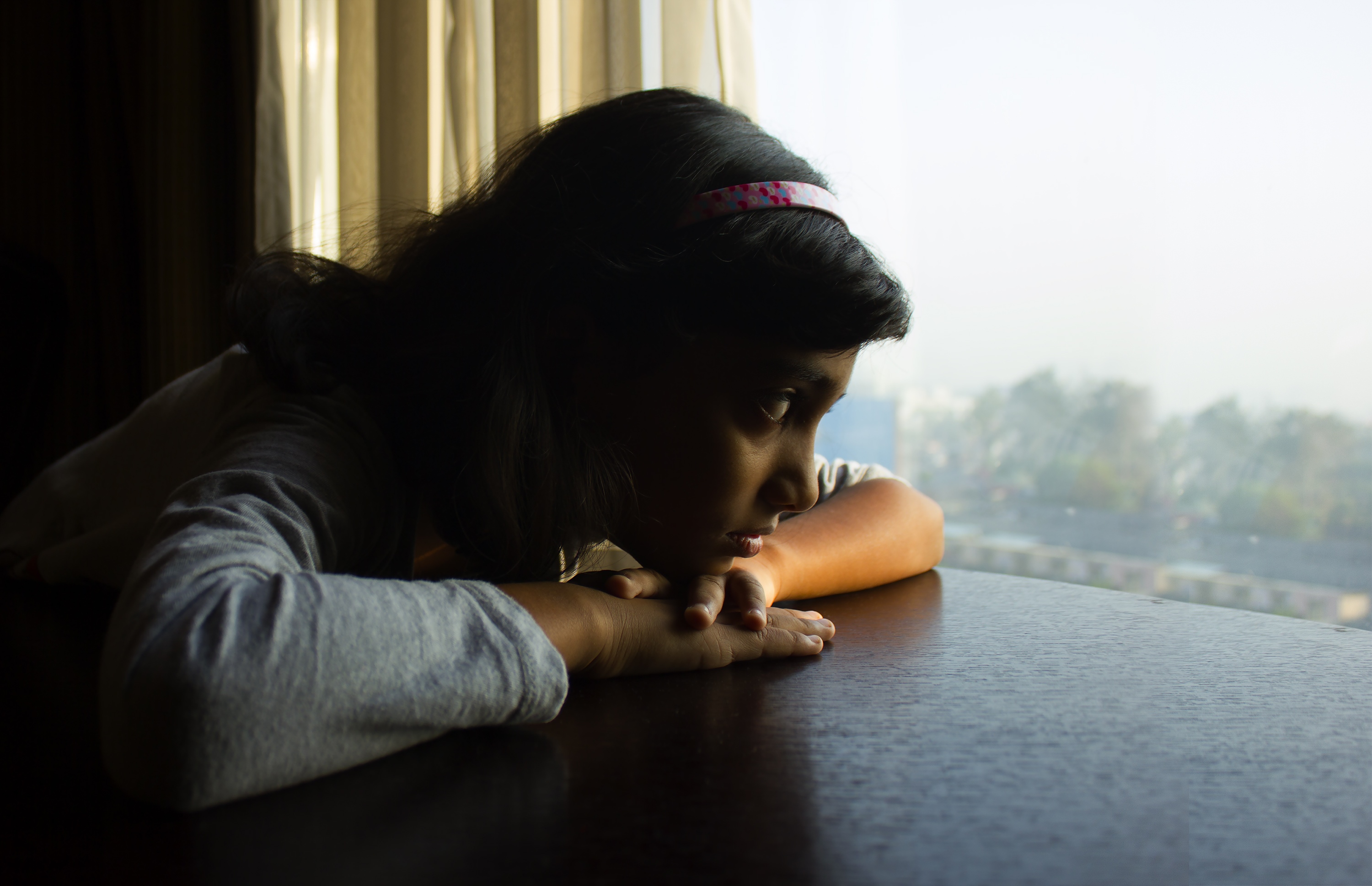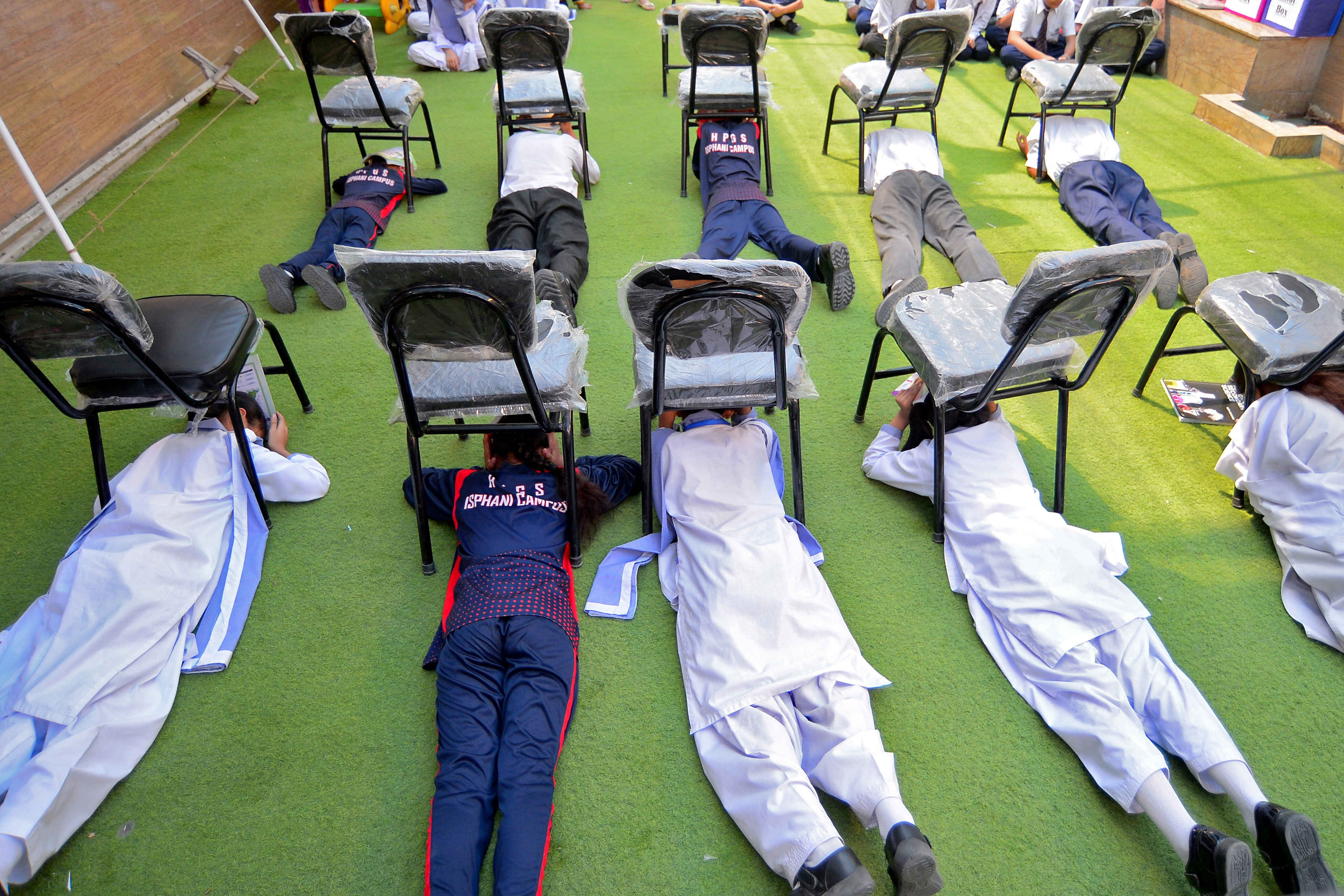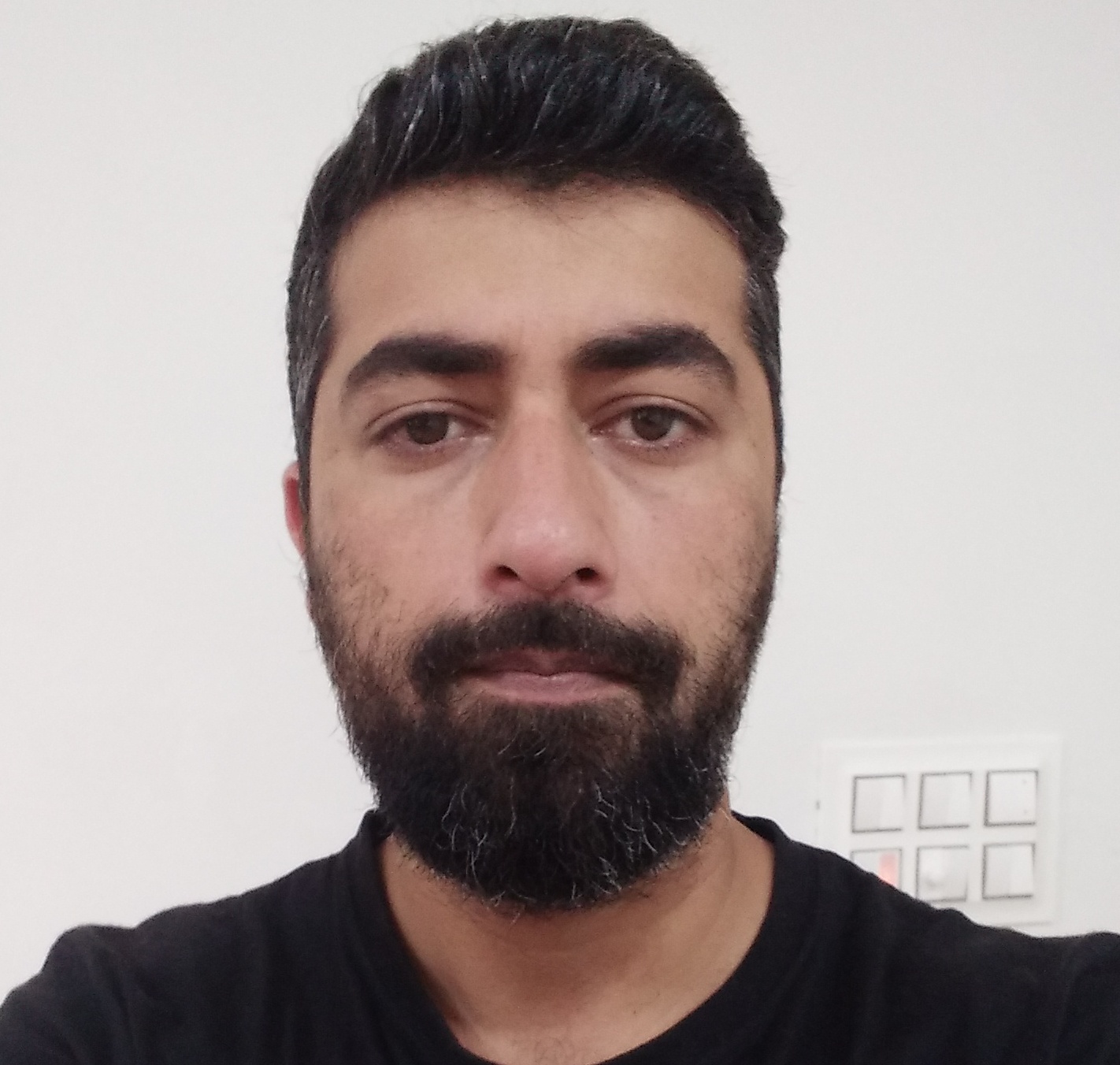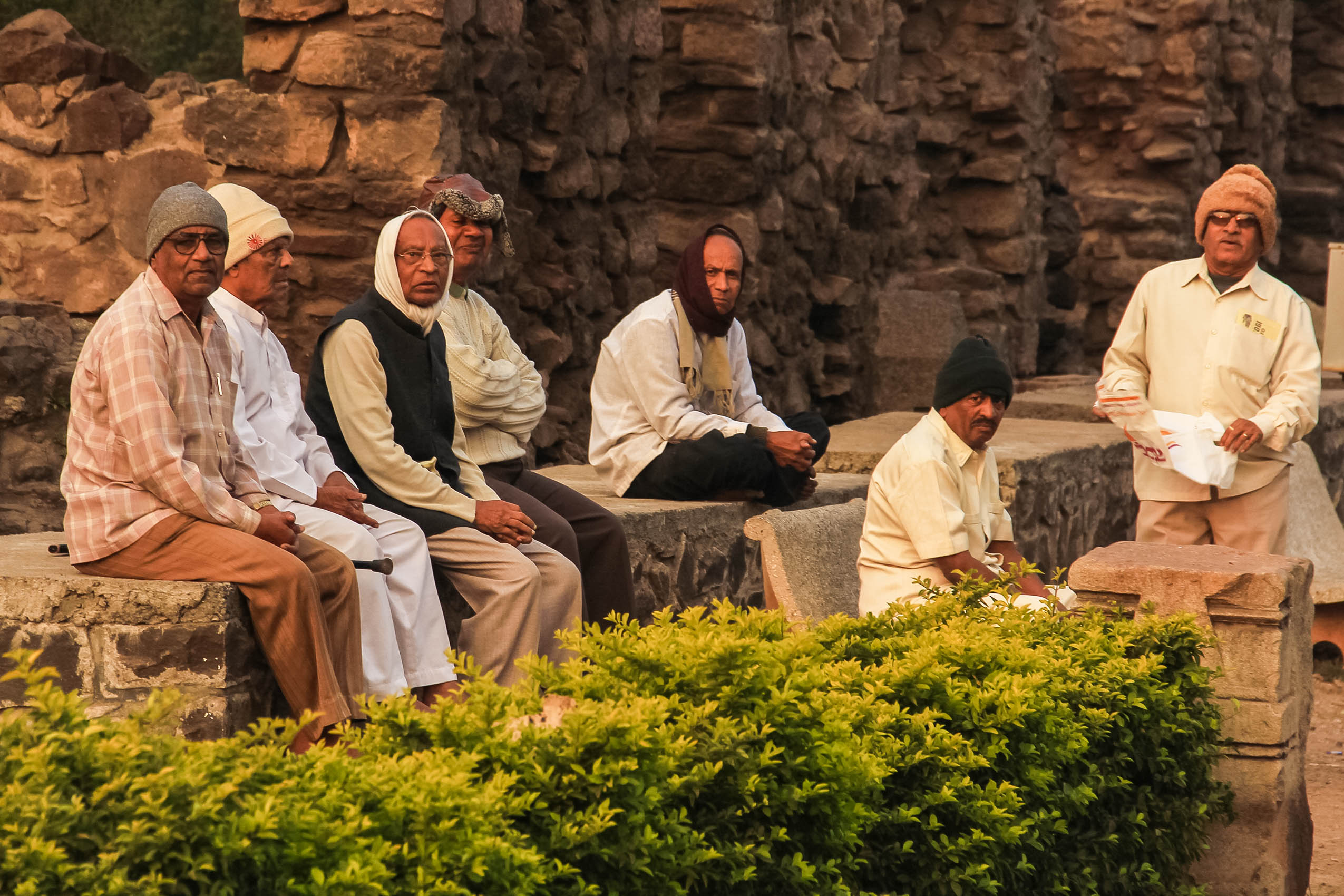A decision by the Brazilian Public Prosecutor's Office to investigate an anti-Zionist Jewish journalist for his criticism of Israel, announced on December 30, surprised organisations that were urging prosecutors to investigate the complicity of the Brazilian media in the violence in Gaza. Media rights organisations were called in by the Front in Defense of the Palestinian People to denounce the normalisation of Israel's brutality by the press, which dismisses the allegations of genocide, apartheid and ethnic cleansing. The prevailing discourse suggests that Israel is retaliating for the attack by Hamas, labelling them as terrorists.
![Journalist Soraya Misleh and historian Gal Souza, from the Front in Defense of the Palestinian People, denounce the silencing of the Palestinian voice by the media. [Photo: Lina Bakr]](/sites/default/files/inline-images/Picture2_1.png)
Breno Altman, founder and editor of the Opera Mundi portal, an alternative media outlet widely respected by the Brazilian left and one of the few with visibility outside the mainstream, was reported to the Public Prosecutor's Office by the Israeli Confederation of Brazil (CONIB). At the request of the prosecutors, the Federal Police opened an investigation.
The precedent is serious. "Voices dissenting from the pro-Israel narrative are targeted by Zionist lobbies to silence them," says Mohamad Al Kadri, president of the Latin-Palestinian Forum, which mobilises solidarity in Latin America. The lack of plurality in the approaches to Israel and Palestine highlights an underlying problem, which is the highly concentrated media system in Brazil, oriented by the few groups that control the largest audiences. The problem of an oligopolised media is chronic in Brazil. When economic or political interests drive groups in one direction, opposing opinions are subject to pressure and criminalisation.
![Journalist Breno Altman, at the Act against Israel's war in Gaza, on Av. Paulista, in S.Paulo, on November 4, 2023 [Photo: Lina Bakr]](/sites/default/files/inline-images/Picture4.png)
The conviction of Altman's criticism is not an isolated case, according to CONIB itself, which asserts that it is "taking legal action against individuals and companies that, in violation of the country's laws, spread anti-Semitic content and hate speech." The alleged instances of antisemitism in the lawsuit against the journalist are posts on the X platform, expressing support for the Palestinian resistance and its organisations in the fight against the "colonial state of Israel.". Targeted by CONIB for the third time, the journalist claims that "Zionism can't stand criticism from within Judaism" and that CONIB is "an agency of a foreign state in our territory, disguised as a representation of the Jewish community" and that "it is dedicated to running the Zionist lobby and its criminal interests."
In a statement, the Brazilian Press Association (ABI) decried CONIB's complaint as misplaced, asserting that it "biasedly and conveniently labels Altman's criticism of Zionism as anti-Semitism." The Collective of Lawyers for Democracy (CAAD) issued a public statement calling the action unreasonable and urging its cancellation.
For these organisations, this represents an attempt to silence the journalist. Altman, also the author of the book Contra o Sionismo: retrato de uma doutrina colonial e racista (Against Zionism: Portrait of a Colonial and Racist Doctrine), released this month by Editora Alameda, proudly states: "I am proud to belong to the militancy against Zionism, occupying the same trench chosen by my ancestors three generations ago," as a descendant of Polish Jews. The involvement of the federal police in the case indicates that, in the coverage of the war in Gaza, dissenting voices face intimidation and the risk of condemnation. The same goes for social networks. São Paulo Metro train operators took a photo in solidarity with the Palestinian people, and the company's management issued an individual warning to the workers who participated in the photo.
Mainstream Media Criticized for Pro-Zionist Bias
The National Federation of Journalists (FENAJ), which represents workers in the sector, believes that companies adopting a pro-Zionist editorial line reduce the space for critical work by professionals. FENAJ defends professionals and has initiated debates within the organisation, says President Samira de Castro. In addition, FENAJ explains that the unprecedented killings of journalists in Gaza eliminate local testimonies and expose professionals to risks. FENAJ, led by Maria José Braga, is a member of the Executive Committee of the International Federation of Journalists (FIJ) and a signatory to the complaint to the International Criminal Court to hold Israel accountable.
Except for alternative media sites, which reject framing the war in Gaza as a war against "terrorists," the conditioning of the Israeli narrative appears in the daily coverage. Even the public media (Empresa Brasil de Comunicação EBC), which seeks to provide more humanised coverage, ends up aligning the editorial criteria of the largest private network group (Rede Globo) by labeling the attacks on Palestinians as an Israel-Hamas war. Its Agência Brasil reproduces private Reuters content. TV Globo's newspapers, on the other hand, consistently describe Hamas and the Palestinian resistance as "terrorist" groups, following the usual terminology used by the rest of the private mainstream media.
![Evangelical and pro-Israel pastor, Edir Macedo, founder of the Universal Church of the Kingdom of God and owner of TV Record [IURD]](/sites/default/files/inline-images/Picture5.png)
The distortion caught the attention of researchers Israel Aparecido Gonçalves and Maria Aldenora dos Santos Lima from two universities in São Paulo and Paraná (Brazil). They analysed 4,687 entries on the subject in the country's two largest newspapers (Folha de S. Paulo and O Estado de S. Paulo) in the first month of the attacks on Gaza and noted the avoidance of the word Palestine (mentioned only in 20% of the content). 80% of the quotes were distributed between Israel (44%) and Hamas (36%).
The imbalance in coverage in favour of Israel has already been discussed by the National Human Rights Council, which in November approved a recommendation sent to each media outlet for journalism to fulfill its duty to inform about the context and avoid war propaganda, but it was not heeded.
In general, major media outlets such as Folha de S. Paulo, Globo, and Estado de S. Paulo, as the website Esquerda Diário analyses, treat the war on the Palestinians as a "just" response to Hamas' attacks. Or, at the very least, present the attacks as solely aimed at Hamas, with the deaths of civilians and children considered collateral damage or a mistake, as seen in the case of the more than 70 deaths of Palestinians bombed in the middle of Christmas.
The Council's thesis, as explained by Councillor Admirson Medeiros Ferro Jr., is that selective information violates the Brazilian population's right to be correctly informed, stigmatising another population that is being punished and massacred as terrorists. The Palestine Front, which organises weekly acts of solidarity with Gaza, now wants the Public Prosecutor's Office to make a statement about non-compliance with this recommendation instead of reinforcing the problem by criminalising criticism, as it is doing in Altman's case. The measure is under discussion with organisations in the field, explains Soraya Misleh.
The National Forum for the Democratisation of Communication, which brings together more than 100 media rights organisations, is concerned about the majority of material reproduced by Western agencies. Global Voices defines the narrative sold to the world about the conflict: Israelis are murdered, Palestinians die. International coverage in Brazil is traditionally fuelled by European agencies such as Reuters and AFP., international companies such as the American CNN, the Spanish El País, the German Deutch Welle, and the BBC have websites in Portuguese in Brazil.
Incoming content is reinforced by opinion pages produced locally. In the case of the resignation of Harvard's president, Claudine Gay, the columnist for the Metrópoles website, Mário Sabino, used the fact to state that "the American university elite, doped up by Wokism, not just at Harvard, supports Hamas terrorists and views the mass murder of Jews with relativistic sympathy.". Rede Globo's website emphasises in one of its articles that she was fired for plagiarism "after a controversy over anti-Semitism" and that students, professors, and donors wanted her to resign. In other content, she "explains" her dismissal.
Media Favours Zionist Narratives
Article 222 of the 1988 Brazilian Constitution states that "the media may not, directly or indirectly, be subject to monopolies or oligopolies.". However, this article has never been regulated or put into practice, leading private media groups to amass significant radio and TV empires, often cross-owned with other companies, and media formats ranging from newspapers to the internet.
In 2017, a major mapping exercise named Media Ownership Monitoring (MOM Brazil) was carried out by the organisations Intervozes and Reporters Without Borders to assess media control. The findings revealed that among fifty media outlets belonging to 26 communication groups, half of them were controlled by just five groups: Globo, Bandeirantes, Record, Folha, and the regional group RBS—an arrangement that persists.
Complicating the analysis is the fact that 80 percent of the entire media sector has other businesses and economic interests outside the sector, spanning private education, finance, real estate, agriculture, energy, transport, infrastructure, and health.
At a regional level, many channels are owned by politicians, characterising the so-called electronic coronelismo - political domination of one or more regions through control of the media. The concentration of media power in the hands of a few individuals or organizations and the resulting control and manipulation of information and communication channels often lead to biased or distorted news coverage and a limited diversity of voices in the media landscape.

A concerning trend that contributed to the rise of the far-right former president and fervent supporter of Israel, Jair Bolsonaro, is the ownership of channels by churches, some of which adhere to "Christian Zionism," which views Israel's actions as biblical and eschatological rather than as violations of Palestinian rights.
During his time in office, Bolsonaro allocated 40 % of TV channel concessions (licensing) to churches. And in the last year of his government, he sanctioned Law 14.408/22, which allows radio and TV stations to sell 100 percent of their programmes. According to the FNDC, “the new law only hides the real objective of the measure, which sought to legalise a business trend that already existed in practice but was flagrantly irregular: the sale of broadcasting space to religious groups.”. This, according to Intervozes, constitutes a serious misuse of purpose, jeopardising plurality and diversity in the Brazilian media.
In December 2023, the situation surrounding media ownership in Brazil worsened when the National Congress approved amendments to the already lenient broadcasting ownership limits. Previously, under regulations established in 1963, ownership was capped at 10 TV stations nationwide, with an average limit of six local radio stations. However, with the enactment of Law 7/2023, these restrictions were significantly loosened. The new law allows a single company or economic group to own up to 20 TV stations, a substantial increase from the previous limit. Additionally, the ownership cap for radio stations, including FM, medium wave, short wave, or tropical, has been raised from six to 20. As of the end of 2023, this new legislation awaits either sanction or veto by President Lula Da Silva.
The Information Pyramid in Brazil
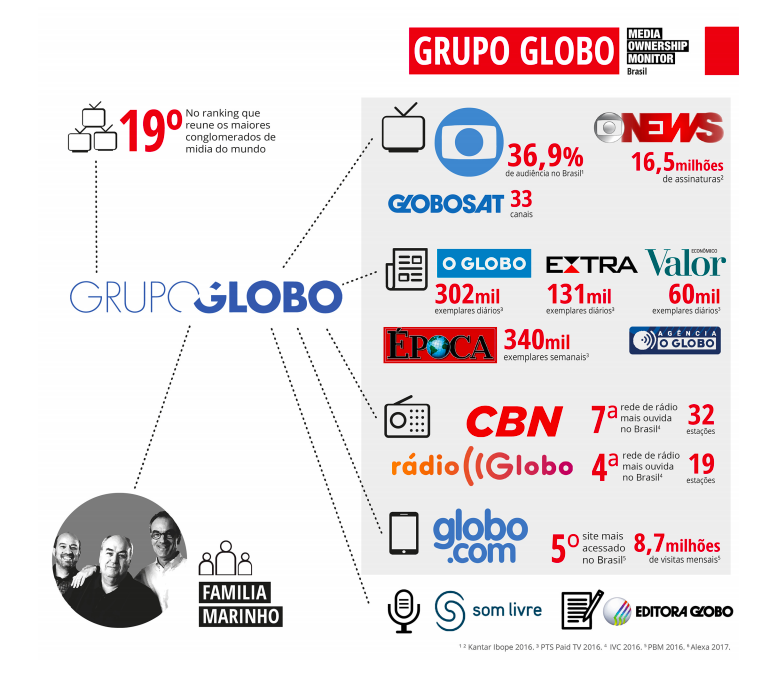
Despite existing legal constraints aimed at curbing media hegemony, the current framework does not hinder the establishment of networks comprising regional companies affiliated with the same economic group. These networks distribute both national and international programs and content. Some of this content is produced by the parent company, while other materials are sourced from international agencies and producers.
Rede Globo is the largest media conglomerate in Brazil, it claims on its website that “its News, Sports, and Entertainment programs reach 99.6% of the Brazilian population, and its linear channels speak directly to over 100 million people in Brazil every day.” The dissemination of content follows a pyramid structure, reaching 123 transmitters and affiliates, or a cross-cutting approach, involving broadcasters, portals, and printed newspapers.
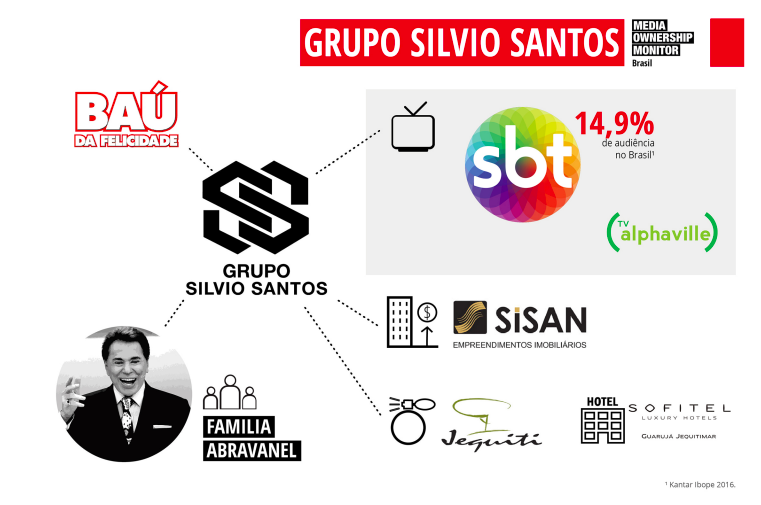
Grupo Folha, one of the country's main media conglomerates, controls the Folha de S.Paulo newspaper, its news website (folha.com.br), Datafolha, one of the country's most respected research institutes, a news agency (Folhapress) and the Centro Tecnológico Gráfico-Folha (CTG-F), one of the largest and most modern graphics parks in Latin America. It is a partner in SPDL, a distribution and logistics company established with the newspaper "O Estado de S. Paulo". According to the Instituto Verificador de Comunicação, Folha's pages were viewed 2 billion times during 2021.
In 2017, a survey of 26 media groups revealed that they operated across multiple types of media, thereby maximizing the reach of their content. The synergy between journalism and entertainment programs, often reinforcing each other through cross-referencing, effectively enhances the penetration of their editorial narratives and frameworks into Brazilian households.
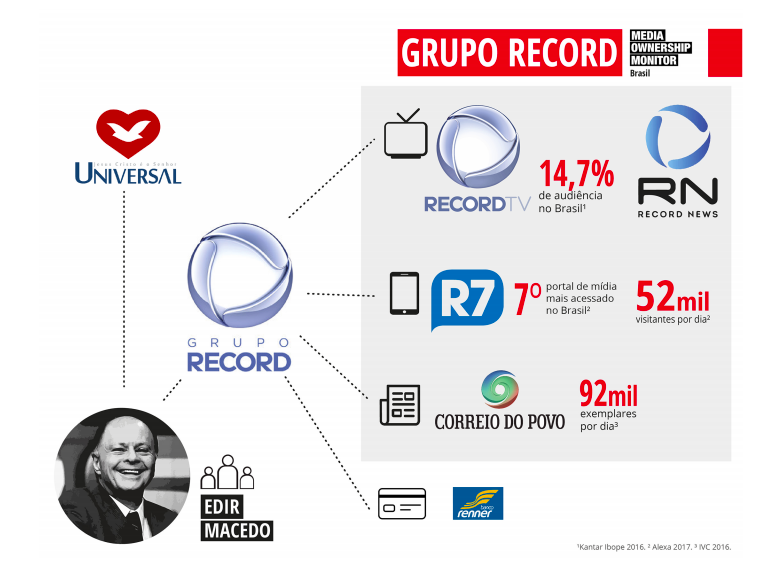
A study conducted by Cenp-Meios on Brazil's advertising market showed that during the first half of 2023, free-to-air television, the Internet, and radio increased their market share compared to 2022. Despite the growing popularity of streaming services and on-demand video platforms, free-to-air television continues to play a crucial role in Brazilian life. The research institute found that at the beginning of 2022, this segment held a 41.7% share of the media market, which increased to 43% in the first half of 2023. Similarly, the internet's share grew from 35.7% to 36.9%, and radio's share went up from 3.7% in 2022 to 4% in the period under review.
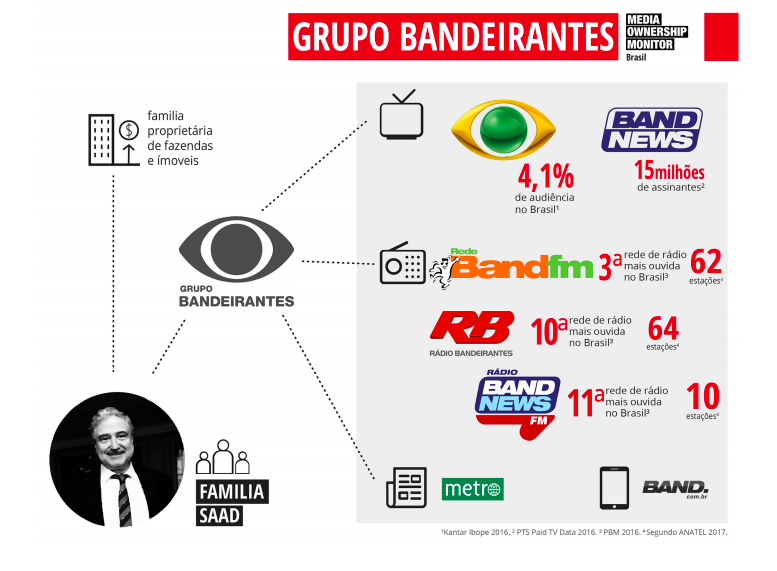
In 2021, the media and entertainment (E&M) industry bounced back from its 2020 downturn, resuming its upward growth trajectory with a notable revenue increase of 10.4%, as reported in the Global Entertainment and Media Survey 2022-26. Conducted by PWC Brazil, the research forecasts that "by 2026, the global E&M industry will amass revenues of US$3 trillion." Specifically for Brazil, the sector is expected to conclude the year with nearly US$ 33 billion in revenues, marking an 8.6% increase. This growth significantly outpaces the 1.7% GDP growth rate projected for 2022 by the Central Bank. By 2026, the Brazilian E&M sector is projected to generate revenues of US$ 39.9 billion.
![A demonstration against Israel's war on Gaza on Paulista Avenue in São Paulo on November 4, 2023, draws attention to the deaths of children while the media focuses on the war against terrorists. [Photo: Lina Bakr]](/sites/default/files/ajr/2024/Picture1.png)
